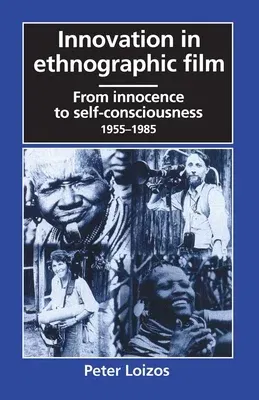Peter Loizos
(Author)Innovation in Ethnographic Film: From Innocence to Self-Consciousness, 1955-1985Paperback, 1 July 1993

Qty
1
Turbo
Ships in 2 - 3 days
In Stock
Free Delivery
Cash on Delivery
15 Days
Free Returns
Secure Checkout

Print Length
234 pages
Language
English
Publisher
University of Chicago Press
Date Published
1 Jul 1993
ISBN-10
0226492273
ISBN-13
9780226492278
Description
Product Details
Author:
Book Format:
Paperback
Country of Origin:
US
Date Published:
1 July 1993
Dimensions:
21.59 x
13.97 x
1.32 cm
ISBN-10:
0226492273
ISBN-13:
9780226492278
Language:
English
Location:
Chicago, IL
Pages:
234
Publisher:
Weight:
290.3 gm